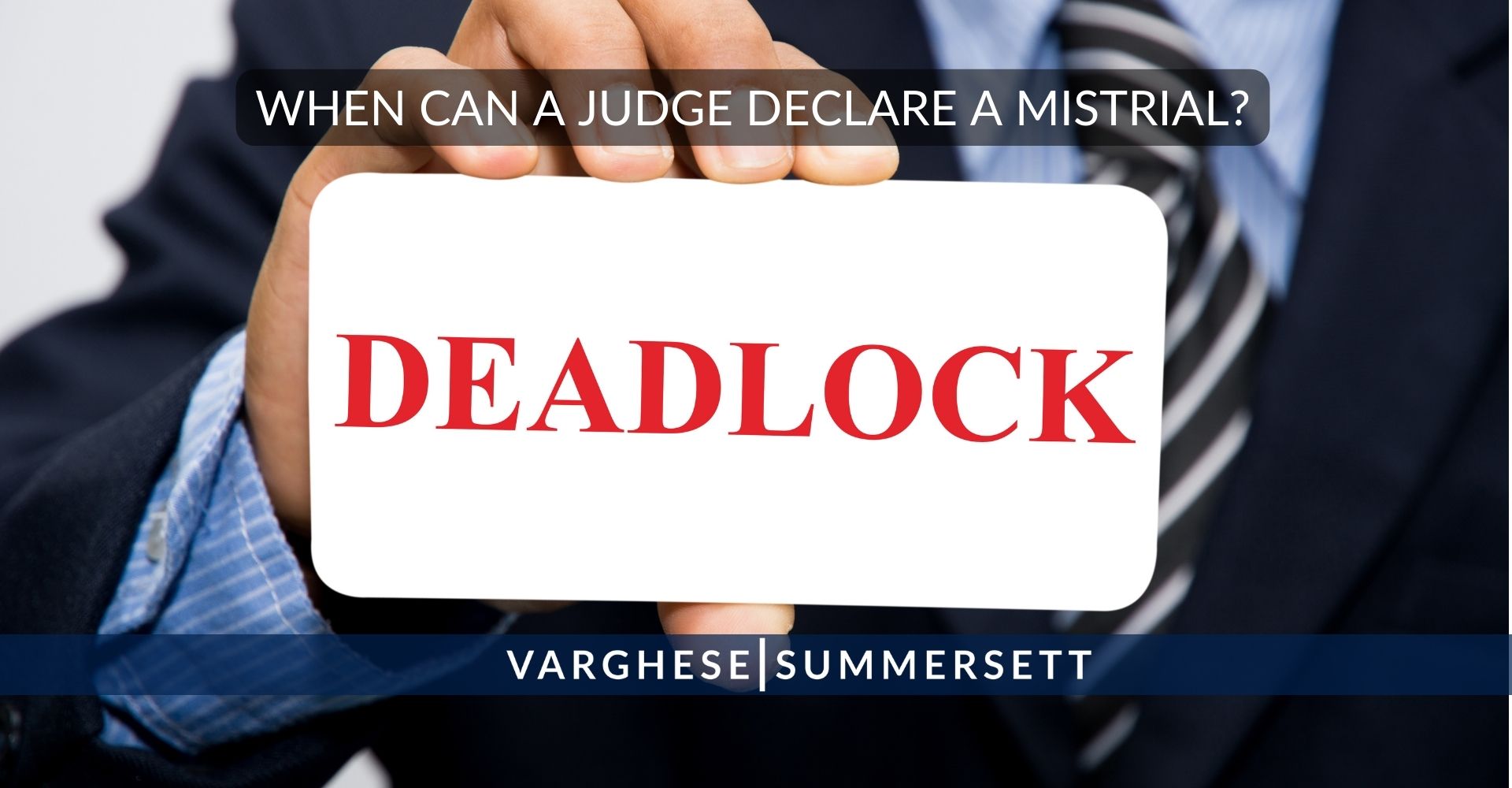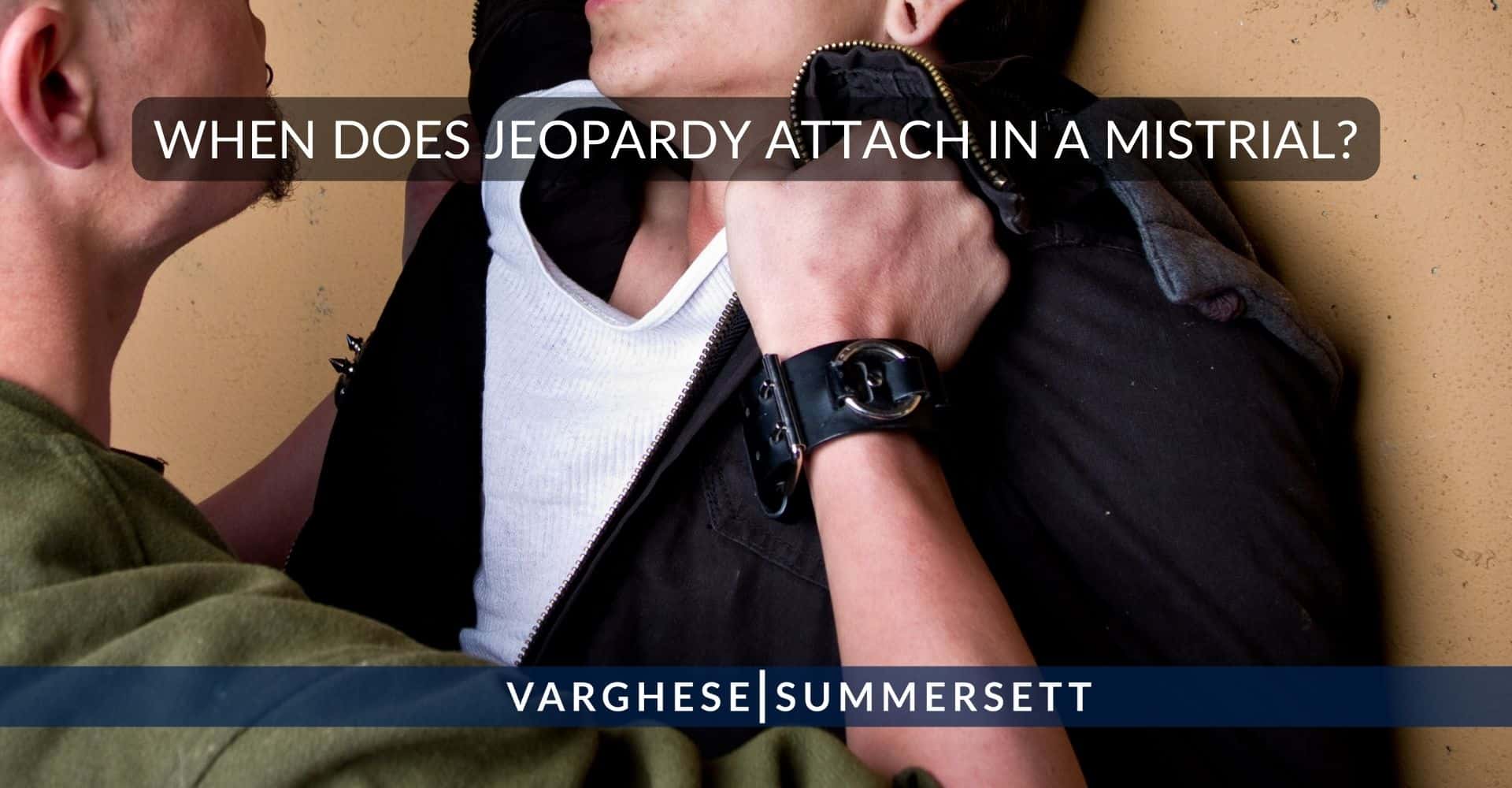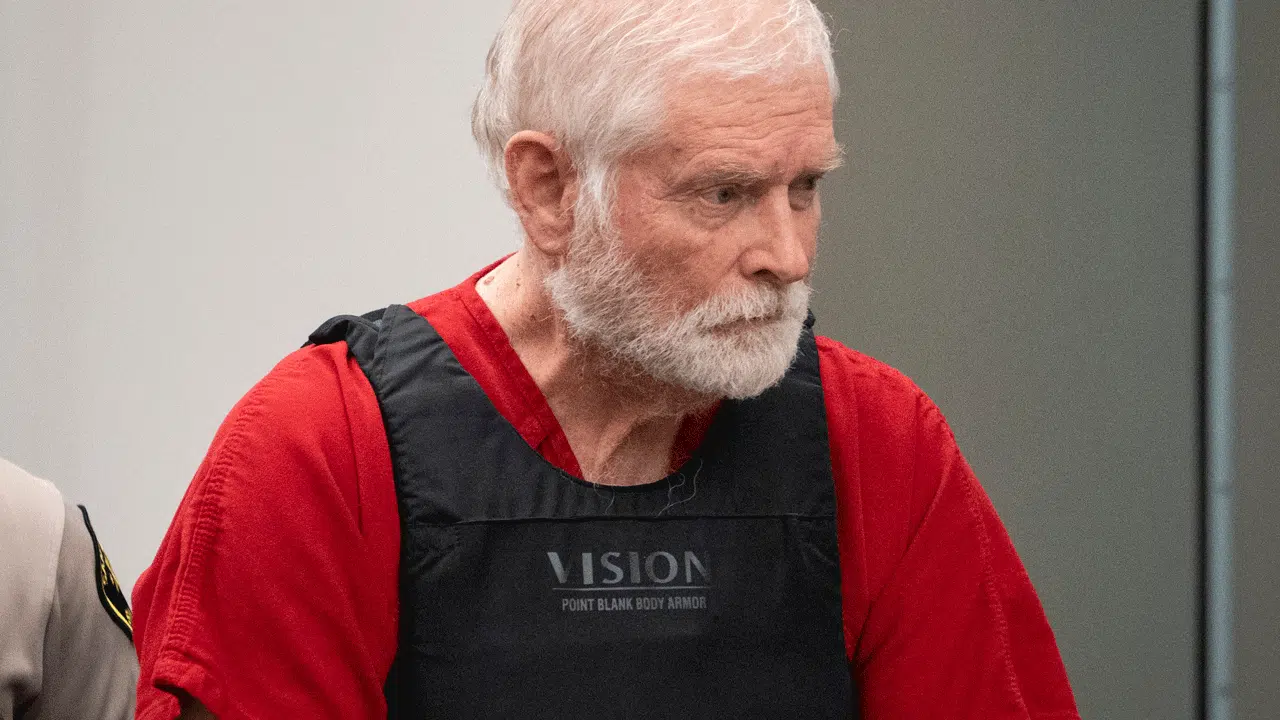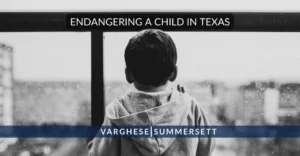What is a Mistrial?
A mistrial is a trial that has not been successfully completed. It can occur for a variety of reasons, such as a hung jury (when the jury is deadlocked and cannot come to a unanimous decision), the death or illness of a juror or attorney, an error in the proceedings that could cause prejudice, or misconduct by a party involved in the case.

When Can a Judge Declare a Mistrial?
A mistrial may be declared for a number of reasons. One of the most common reasons for a judge to declare one is due to a hung jury. A “hung jury” is when a jury deadlocks after lengthy deliberations and can’t come to a unanimous decision on the defendant’s guilt or innocence.
A mistrial can also occur when there has been a fundamental injury to the rights of a defendant to have a fair trial. Reasons could include:
- Rule violations, such as a prosecutor failing to turn over evidence to the other side;
- A witness blurting out an inadmissible statement;
- Juror misconduct, such as visiting a crime scene, researching the case, or drinking;
- Extraordinary circumstances, such as death of an attorney or the judge;
- A fundamental error that is prejudicial (unfair) to the defendant and that cannot be cured or overcome by an instruction to the jury
The prosecution or the defense can make a motion for a mistrial or a judge can declare one on their own initiative or sua sponte. If a judge denies a motion either side’s motion for a mistrial, the trial goes on.
What Happens After a Mistrial is Declared?
Mistrials can be very emotional for the parties involved in the case. When a trial begins, people expect there to be some sort of resolution at the end. A mistrial, in essence, temporarily leaves the case in limbo until decisions can be made about how and when to move forward.
Depending on what prompted the mistrial, most cases will be retried again at a later date. This can benefit the defense. Because prosecutors must prove their case beyond a reasonable doubt, a mistrial might prompt prosecutors to reevaluate their case based on what they have seen of the defense’s hand. Some cases are resolved through a plea bargain to a lesser charge or even a dismissal.
What About Double Jeopardy? Can You Be Tried Twice for the Same Crime?
The Double Jeopardy Clause of the Fifth Amendment to the U.S. Constitution prevents the government from prosecuting a defendant more than once for the same offense. However, double jeopardy usually doesn’t apply if a mistrial is declared. If the mistrial was prompted due to a hung jury or if the defense requested or consented, then double jeopardy doesn’t come into play.
However, there are instances in which double jeopardy will apply and the case will be barred from further prosecution. For example, if the mistrial was declared due to prosecutorial misconduct, over the objection of the defendant, or for no good reason, the state likely will not get a do-over.
It’s important to point out that most judges declare a mistrial only after careful consideration and in cases of absolute necessity.

Does Jeopardy Attach in a Mistrial?
“Jeopardy attaching” is a legal concept that refers to the point at which a person is put at risk of being convicted of a crime. In the United States, the Fifth Amendment to the Constitution provides that no person shall “be subject for the same offense to be twice put in jeopardy of life or limb.” This is known as the Double Jeopardy Clause. Jeopardy is generally considered to attach when the jury is sworn in or, in a bench trial, when the court begins to hear evidence.
In Texas, as in other states, jeopardy attaches when the jury is sworn in. If a mistrial is declared after that point, the Double Jeopardy Clause may prevent the defendant from being retried for the same offense, unless certain exceptions apply. For example, if a mistrial is declared because of a hung jury, or at the request of the defendant, a retrial is generally allowed.
Reasons for a mistrial can include:
- Hung Jury: This is when the jury cannot reach a unanimous decision.
- Illness or Death: If a juror or attorney becomes seriously ill or dies during the trial.
- Error in Proceedings: If an error occurs during the trial that could prejudice the outcome, a mistrial may be declared.
- Misconduct: If there is misconduct by a party, attorney, or juror involved in the case, a mistrial may be declared.
- Improper Introduction of Evidence: If evidence that should have been excluded is introduced to the jury, a mistrial may be declared.
- External Influence: If the jury is exposed to outside influence or information not presented in court, a mistrial may be declared.
Please note that this is a general explanation and the specifics can vary based on the circumstances of each case and the laws of the jurisdiction.
Legal Framework for Mistrials
The Constitutional Basis
The concept of a mistrial is deeply entrenched in the American legal system’s commitment to ensuring a fair trial, a right guaranteed by the Constitution. This principle is primarily derived from the Sixth Amendment, which assures the right to a speedy and public trial by an impartial jury. Additionally, the Fifth Amendment’s Double Jeopardy Clause plays a crucial role in the context of mistrials.
The Sixth Amendment and Fair Trial
Right to an Impartial Jury
The Sixth Amendment ensures that every individual has the right to a trial by an impartial jury. A mistrial may be declared if this impartiality is compromised, for instance, by juror bias or external influence.
Speedy and Public Trial
The amendment also guarantees a speedy trial. Delays or procedural errors leading to extended trials can sometimes result in a mistrial, ensuring that the defendant’s right to a timely resolution is not violated.
The Fifth Amendment and Double Jeopardy
Protection Against Double Jeopardy
The Fifth Amendment protects individuals from being tried twice for the same offense. In the context of mistrials, this clause is critical in determining whether a retrial is constitutionally permissible.
Application in Mistrials
The Double Jeopardy Clause is particularly relevant when a mistrial is declared due to prosecutorial misconduct or other reasons that could be seen as an attempt to secure a more favorable jury.
The Role of Due Process
Fourteenth Amendment
The Due Process Clauses of the Fifth and Fourteenth Amendments further reinforce the right to a fair trial. They ensure that legal proceedings are conducted in a manner that respects the legal rights of the accused.
Application in Mistrials
Due process is a key consideration in declaring a mistrial. Any violation of due process, such as the improper admission of evidence or significant procedural errors, can be grounds for a mistrial.
Judicial Discretion and Responsibility
Judge’s Role
The judge plays a pivotal role in upholding the principles of a fair trial. They have the discretion to declare a mistrial when they believe that the trial cannot be fairly continued or concluded.
Balancing Act
Judges must carefully balance the interests of the defendant, the prosecution, and the public interest in a fair and efficient justice system when deciding whether to declare a mistrial.
Recent Examples: Will George Alan Kelly Get Retried After Mistrial?
On April 23, 2024, the case against George Alan Kelly resulted in a mistrial in Arizona. Kelly, a 75-year-old rancher, was charged with second-degree murder and aggravated assault after shooting a migrant on his property.
The migrant was believed to have been heading back to the Mexico border when Mr. Kelly shot him with an AK-47 from about 115 yards away. The case has garnered nationwide attention. The mistrial was reportedly granted after jurors could not reach a unanimous verdict. If that is true and a mistrial was granted after jurors hung in favor of an acquittal, prosecutors may not be able to bring the charge again.

Mistrial Declared in Karen Read Murder Trial
In the Karen Read murder trial, the judge issued a “dynamite charge” (also known as an Allen charge) to the jury to encourage them to reach a verdict. Despite this, the jury remained deadlocked, leading the judge to declare a mistrial on July 1, 2024. Read is accused of killing her boyfriend, Boston police officer John O’Keefe, allegedly by striking him with her SUV and leaving him in a snowbank to die. The defense claims that O’Keefe’s injuries were inconsistent with being hit by a car and suggests alternative scenarios involving a fight or animal attack



